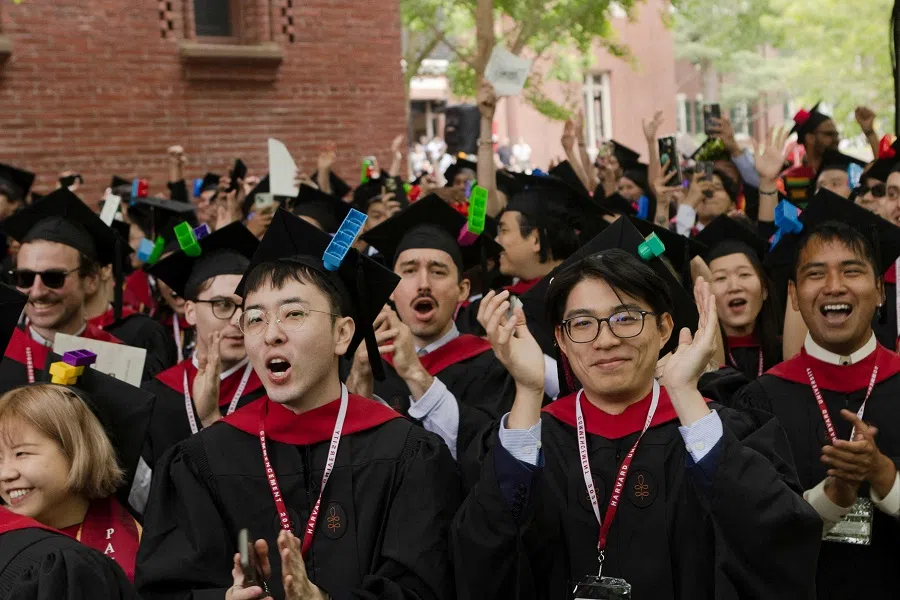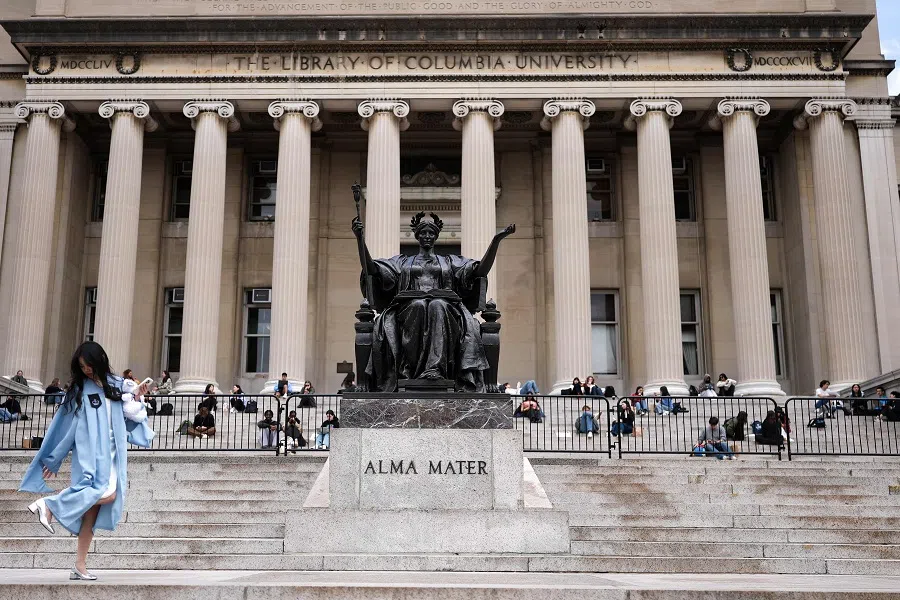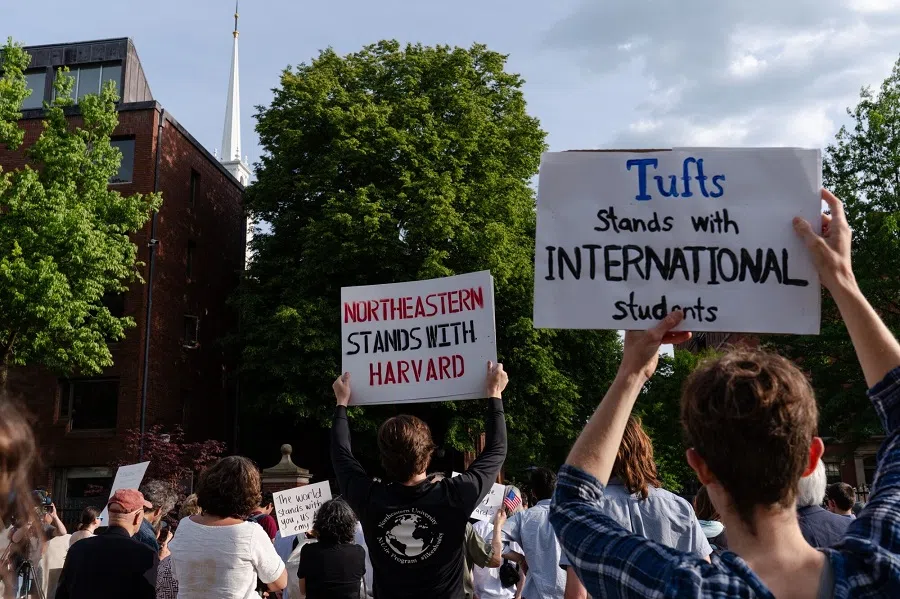How the US–China education crackdown is fracturing the future
Amid the recent flurry of activity among US universities with regards to foreign students, US Secretary of State Marco Rubio has taken aim at Chinese students, announcing aggressive actions to revoke visas. Lianhe Zaobao China news editor Yang Danxu looks at the possible consequences.

A little over two months ago, a Chinese friend who was considering overseas study options for their child sent me a message, asking me if it was true: “50 universities, including Harvard and Stanford, are revoking the visas of Chinese students.” At the time, I scoffed at this dubious information. Never did I imagine that anything seems possible now.
Following escalating tensions between the Donald Trump administration and top colleges such as Harvard University, the US State Department further intensified its crackdown on higher education institutions on 27 May, ordering embassies to temporarily suspend visa appointments for foreign students, pending further instructions regarding enhanced scrutiny of the applicants’ social media accounts.
On 28 May, the US State Department dropped a bombshell specifically targeting Chinese students. In a statement titled “New Visa Policies Put America First, Not China”, US Secretary of State Marco Rubio harshly stated that under Trump’s leadership, the State Department will work with the Department of Homeland Security to “aggressively revoke visas for Chinese students”, including those with “connections to the Chinese Communist Party” or studying in “critical fields”.
It further asserted that the US will also revise visa criteria to enhance scrutiny of all future visa applications from mainland China and Hong Kong.
US ambiguity
This statement caused an uproar in Chinese public opinion, with some Chinese media describing it as an expanded version of “Presidential Proclamation 10043”. Proclamation 10043 is an executive order signed by Trump during his first term in May 2020, restricting the entry of Chinese students, mostly post-graduate students and post-doctorate researchers affiliated with the Chinese military, into the US for study or research, citing national security concerns. At the time, the affected Chinese students primarily came from the “Seven Sons of National Defence” universities, such as Beihang University, Harbin Institute of Technology and Northwestern Polytechnical University.
The State Department’s new statement does not specify which Chinese students will be considered affiliated with the Chinese Communist Party, nor does it define what constitutes “critical fields”, making it difficult to predict how many Chinese students might lose their eligibility to study in the US.

The State Department’s new statement does not specify which Chinese students will be considered affiliated with the Chinese Communist Party, nor does it define what constitutes “critical fields”, making it difficult to predict how many Chinese students might lose their eligibility to study in the US. However, compared to Proclamation 10043, the number of those affected is expected to increase significantly.
The ambiguity of Rubio’s statement also suggests that the US will have greater discretion in evaluating Chinese student visas going forward. Chinese students currently in the US or planning to study there will face huge uncertainties, and the over 270,000 Chinese students currently studying in the US face the risk of their degrees being disrupted.
Restrictions and distrust
From making things difficult for international students at Harvard, to indiscriminately halting visa applications for all international students, and now to tailoring visa restrictions specifically for Chinese students, the Trump administration’s recent battle with elite American universities has ultimately affected China.
The result will likely be the same as the astronomically high tariffs: accelerated decoupling between the two countries in yet another area.
The trajectory of events closely resembles the Trump administration’s imposition of reciprocal tariffs on the world in early April — targeting all countries, but with the sharpest edge reserved for China. This time, Washington dealt a heavy blow to Chinese students, and the result will likely be the same as the astronomically high tariffs: accelerated decoupling between the two countries in yet another area.

For decades, the US has been the top overseas study destination for Chinese students. The tuition fees of international students, including those from China, have been an important source of income for many American colleges. Since Trump’s first term, China-US relations have deteriorated and the US has ramped up its restrictions on China in the education sector. In addition to prohibiting Chinese students affiliated with the military from studying abroad in the US, it has also implemented the China Initiative to target Chinese researchers, including Chinese-American scientists, suspected of spying or stealing research findings in the US.
Although the former Joe Biden administration terminated the China Initiative and attempted to restore people-to-people exchanges with China, a chilling witch hunt atmosphere hung over American academia, and Washington remained wary of Chinese students and researchers.
Chinese academics I am familiar with revealed that even when they were invited to attend US academic conferences by official US institutions, they were still subjected to prolonged questioning in “a small dark room” upon arrival in the US. Then-Deputy Secretary of State Kurt Campbell publicly stated last year that American universities welcomed Chinese students to study humanities, but not science, and that US universities are limiting Chinese students’ access to sensitive technology, given security concerns.
This process allows the US to exert soft power, deeply embedding American values and institutional ideals within China’s elite, cultivating a generation of Chinese individuals well-versed in American affairs.
Personal connections as diplomacy
For many years, educational and cultural exchanges have served as a pillar of people-to-people diplomacy between China and the US, playing a vital role in stabilising the bilateral relationship. Many Chinese students studying in the US receive high-quality education, gain exposure to American society, and broaden their global perspectives, with some returning to China after graduation and others remaining in the US to work. As a result, personal connections between both sides are forged.
Among these Chinese students are many who rise to leadership positions in business and the government. This process allows the US to exert soft power, deeply embedding American values and institutional ideals within China’s elite, cultivating a generation of Chinese individuals well-versed in American affairs.

Now, as China and the US move towards decoupling in the realm of education and culture, Washington is closing the doors to exchange, attempting to push more and more Chinese students out of the country. At the same time, as studying in the US becomes increasingly precarious for Chinese students, the enthusiasm for American education among Chinese individuals will also be dampened by these restrictions.
The wall between both countries will only grow higher and more insurmountable, hindering mutual understanding and ultimately driving them further apart.
It is also important to remember that amid escalating China-US tensions, China has been vigorously promoting self-reliance in science and technology and bolstering its cultural confidence. A growing number of Chinese are becoming disenchanted with the “beacon” that is America, no longer holding it in the same reverence and aspiration as before. Consequently, the wall between both countries will only grow higher and more insurmountable, hindering mutual understanding and ultimately driving them further apart.
This article was first published in Lianhe Zaobao as “鲁比奥放狠话剑指中国留学生”.





![[Big read] When the Arctic opens, what happens to Singapore?](https://cassette.sphdigital.com.sg/image/thinkchina/da65edebca34645c711c55e83e9877109b3c53847ebb1305573974651df1d13a)